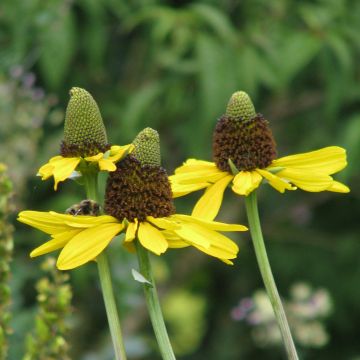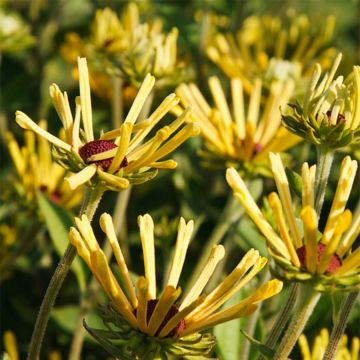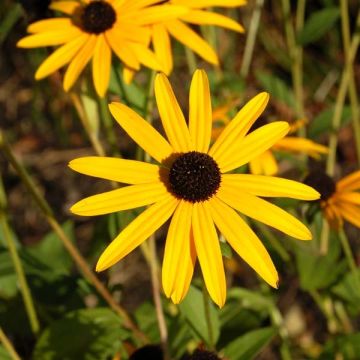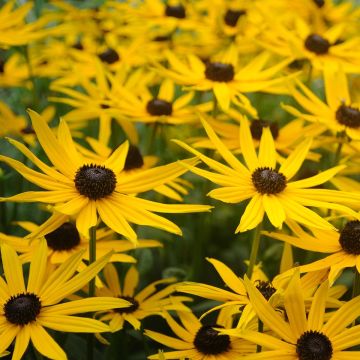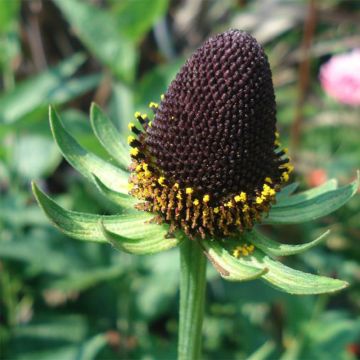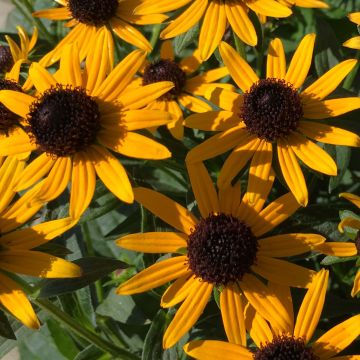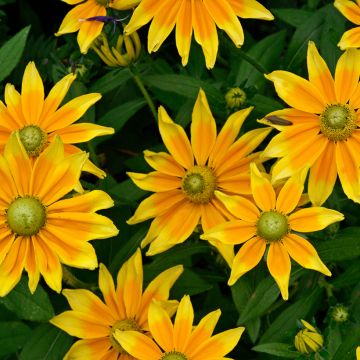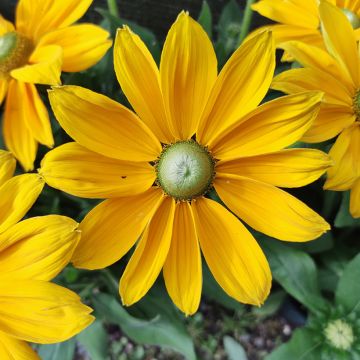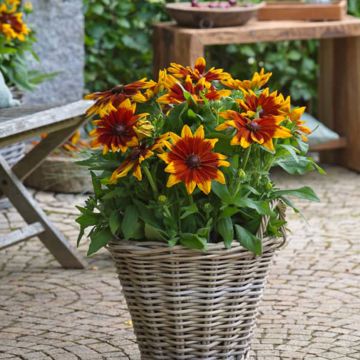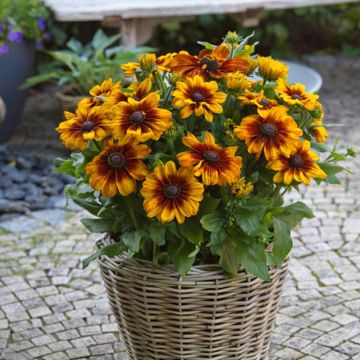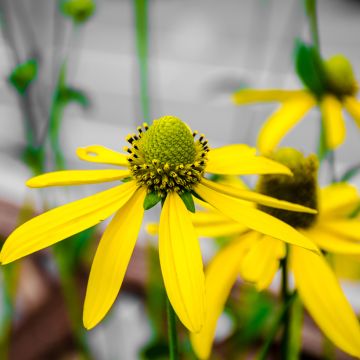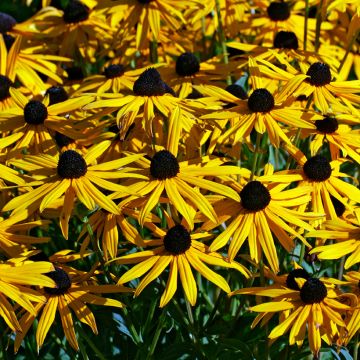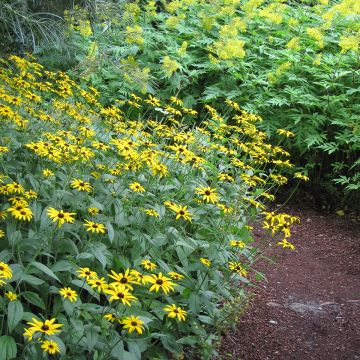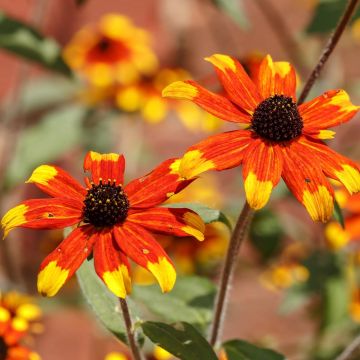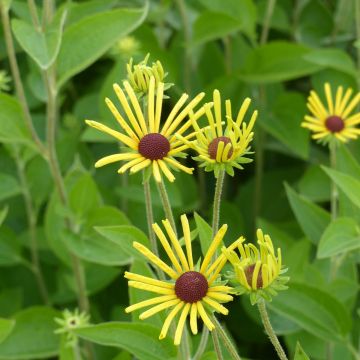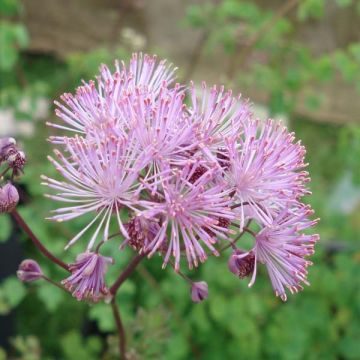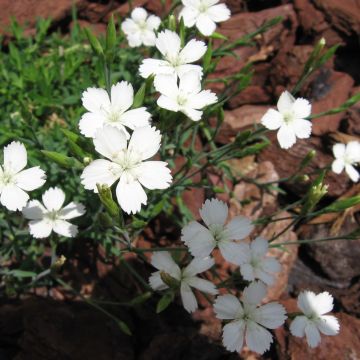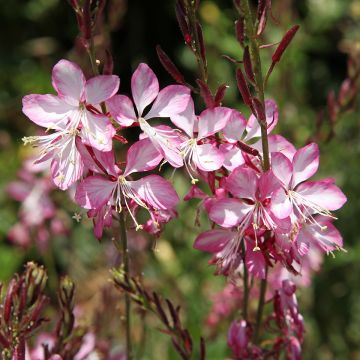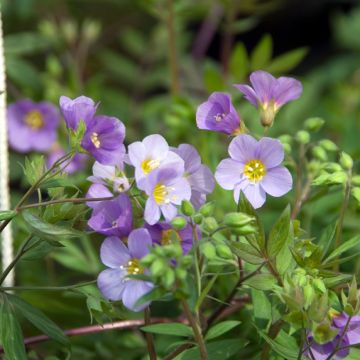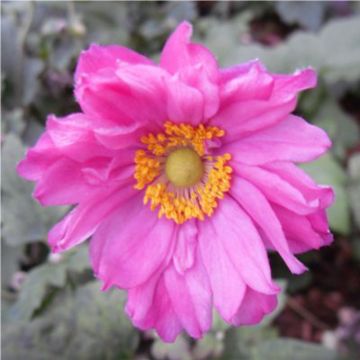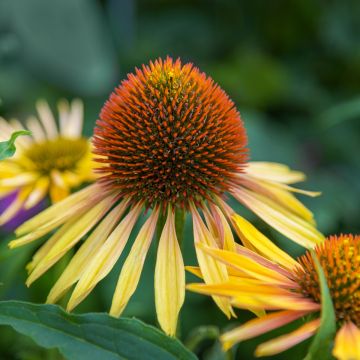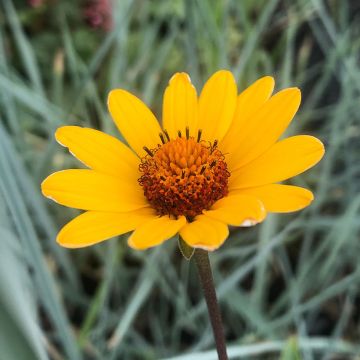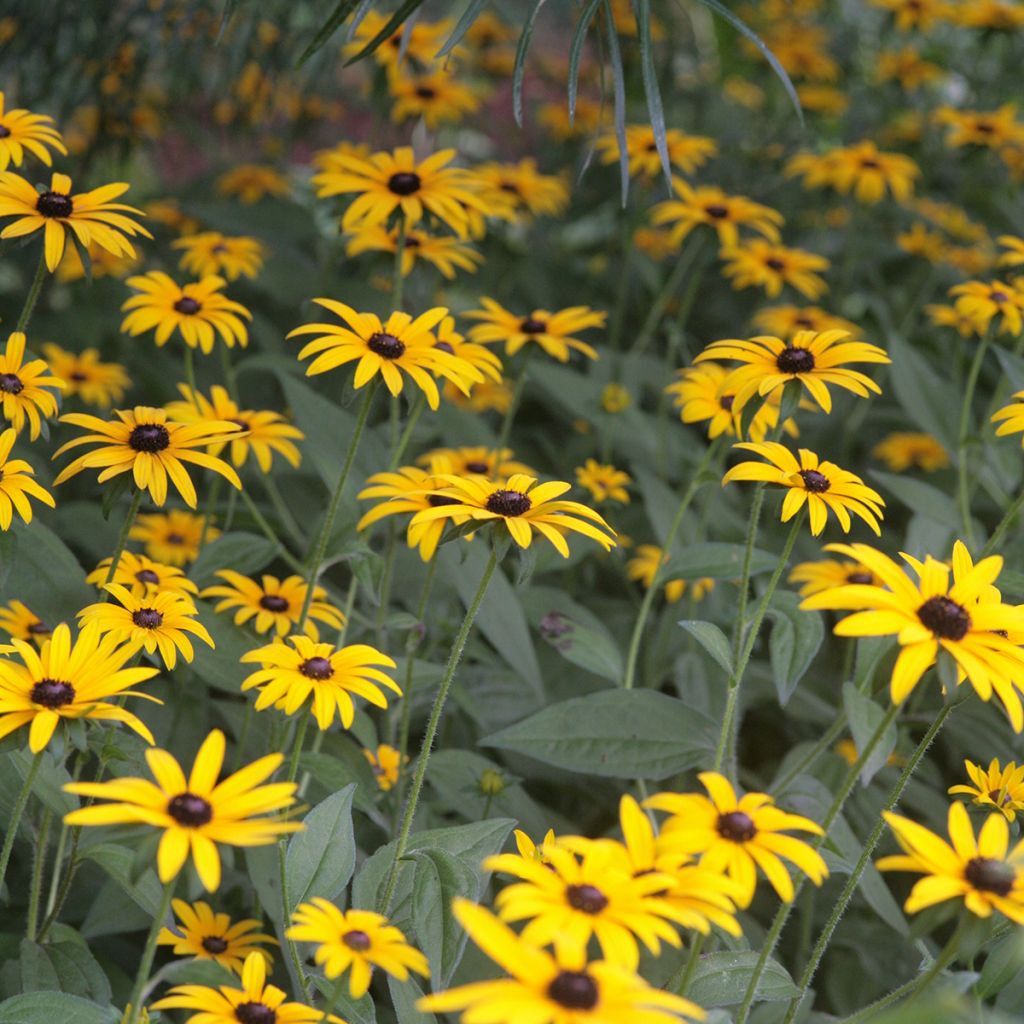

Rudbeckia fulgida var. sullivantii Pot of Gold
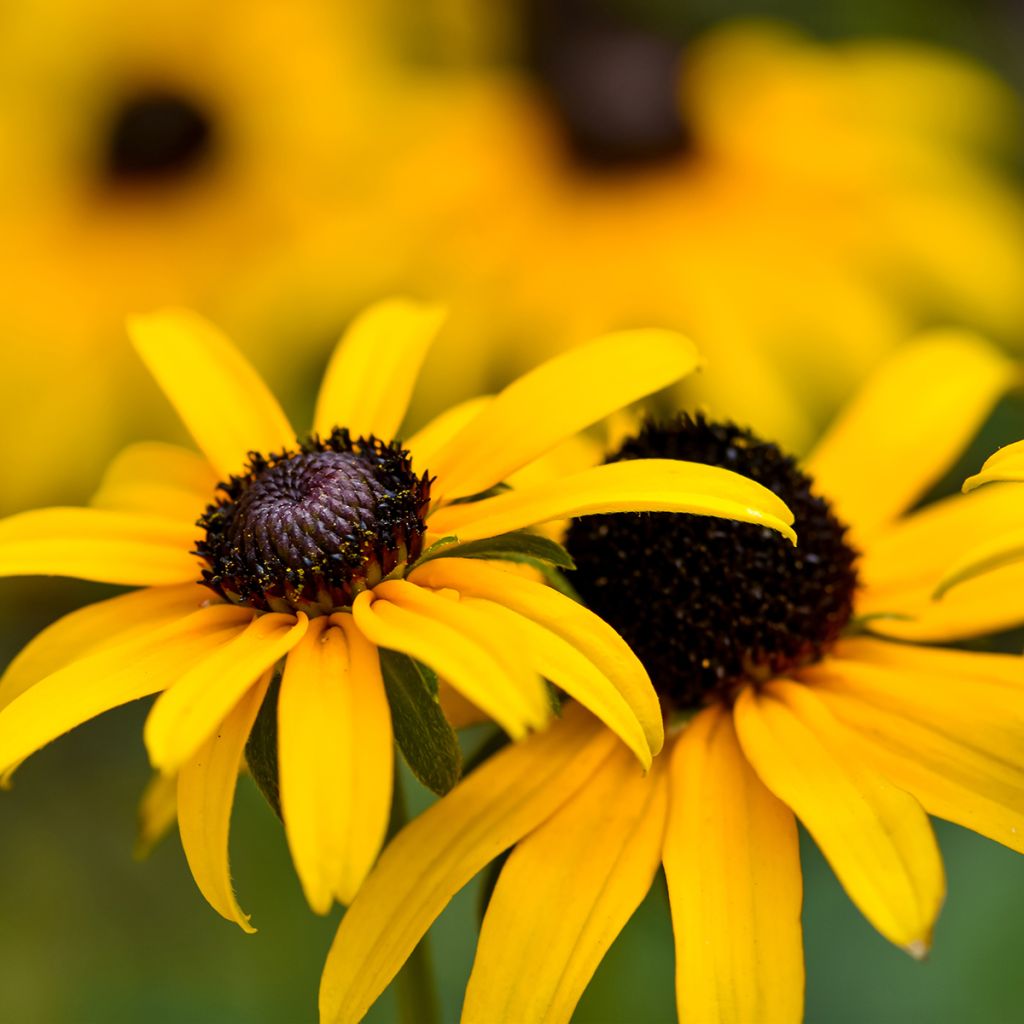

Rudbeckia fulgida var. sullivantii Pot of Gold
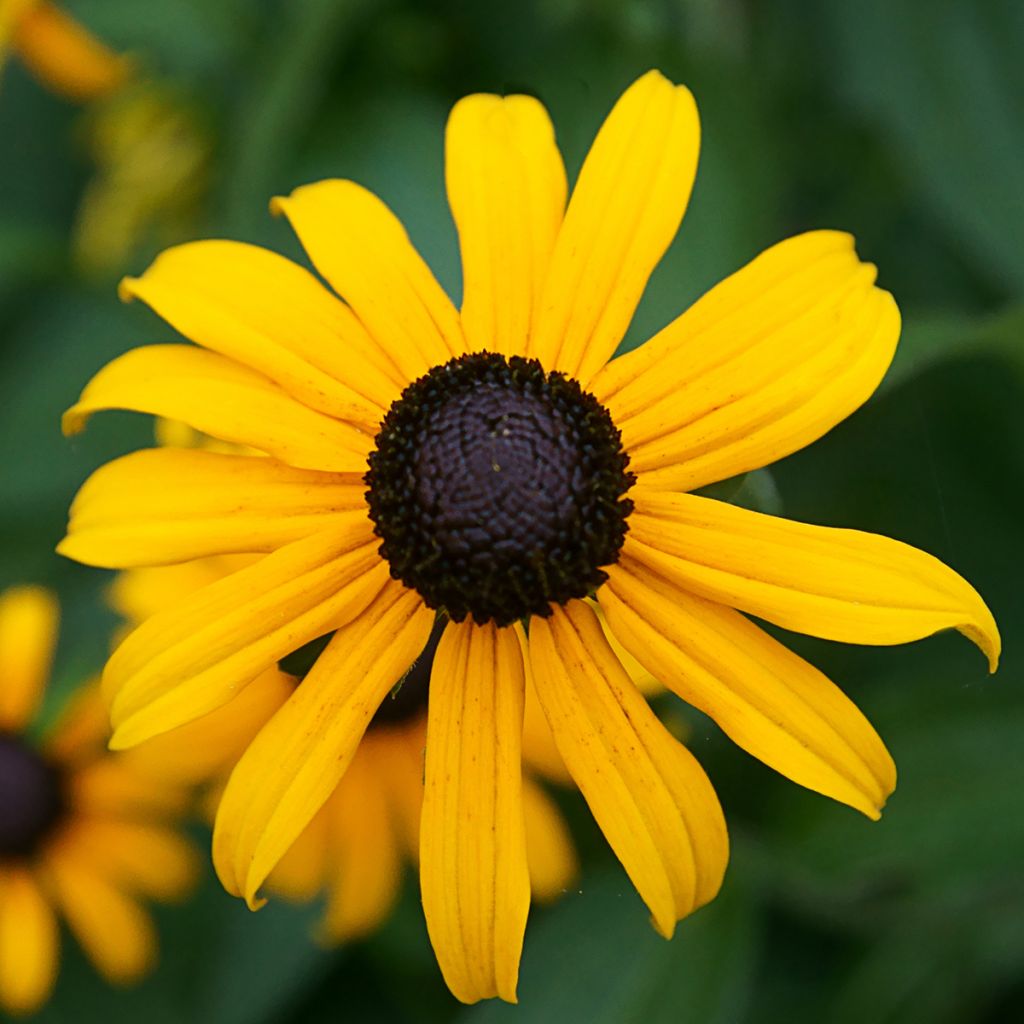

Rudbeckia fulgida var. sullivantii Pot of Gold
Rudbeckia fulgida var. sullivantii Pot of Gold
Rudbeckia fulgida var. sullivantii Pot of Gold
Sullivant's Coneflower, Black-Eyed Susan
Special offer!
Receive a €20 voucher for any order over €90 (excluding delivery costs, credit notes, and plastic-free options)!
1- Add your favorite plants to your cart.
2- Once you have reached €90, confirm your order (you can even choose the delivery date!).
3- As soon as your order is shipped, you will receive an email containing your voucher code, valid for 3 months (90 days).
Your voucher is unique and can only be used once, for any order with a minimum value of €20, excluding delivery costs.
Can be combined with other current offers, non-divisible and non-refundable.
Why not try an alternative variety in stock?
View all →This plant carries a 12 months recovery warranty
More information
We guarantee the quality of our plants for a full growing cycle, and will replace at our expense any plant that fails to recover under normal climatic and planting conditions.
Would this plant suit my garden?
Set up your Plantfit profile →
Description
The Rudbeckia fulgida 'Forever Gold' is a beautiful compact and very floriferous variety. From June to October, dozens of solar flowers, golden yellow with a black heart, are produced at the end of upright and sturdy stems. Position in full sun, in a good garden soil that is neither too dry nor too poor, and your flower beds will light up for long months!
Essential in gardens, rudbeckias belong to the Asteraceae family, just like asters, centaureas, yarrows. The species Rudbeckia fulgida, also called orange rudbeckia, originates from the prairies of the Eastern USA, where competition, full sun, and heat are present. Therefore, they are reliable and very robust plants in the garden. They produce large "sun" flowers throughout the summer, which are actually inflorescences: the peripheral flowers, yellow, attract pollinators, while the central flowers, dark, will produce the seeds. The slender clump has dark green, elongated, and pointed leaves.
The 'Forever Gold' variety is a selection that stands out for its fairly compact habit, which will not exceed 60 cm (24in) in height and width, but above all very uniform, forming a well-rounded ball. Very floriferous, it produces numerous flowers from June to October, with a diameter of about 10 cm (4in), and which are carried at the end of sturdy and branched stems.
Welcoming the 'Forever Gold' rudbeckia in your garden is not difficult: in a sunny location, a normal, properly drained garden soil, preferably limestone, will suit it perfectly. If a well-established clump can withstand drought, the flowering will be more beautiful if the soil does not dry out during the summer. Maintenance of this plant is very limited, and simply consists of removing faded flowers from time to time. However, you can also leave them for their autumnal appeal once dry, especially since they then serve as a good food source for birds.
You will achieve beautiful scenes by mixing this plant with other prairie plants, such as Asclepias tuberosa, the yellow centaurea (Centaurea macrocephala), and for a more exotic touch blend with the Kniphofia 'Pineapple Popsicle', and the tall grasses Calamagrostis 'Karl Foerster' or Panicum virgatum 'Heavy Metal'.
Report an error about the product description
Rudbeckia fulgida var. sullivantii Pot of Gold in pictures
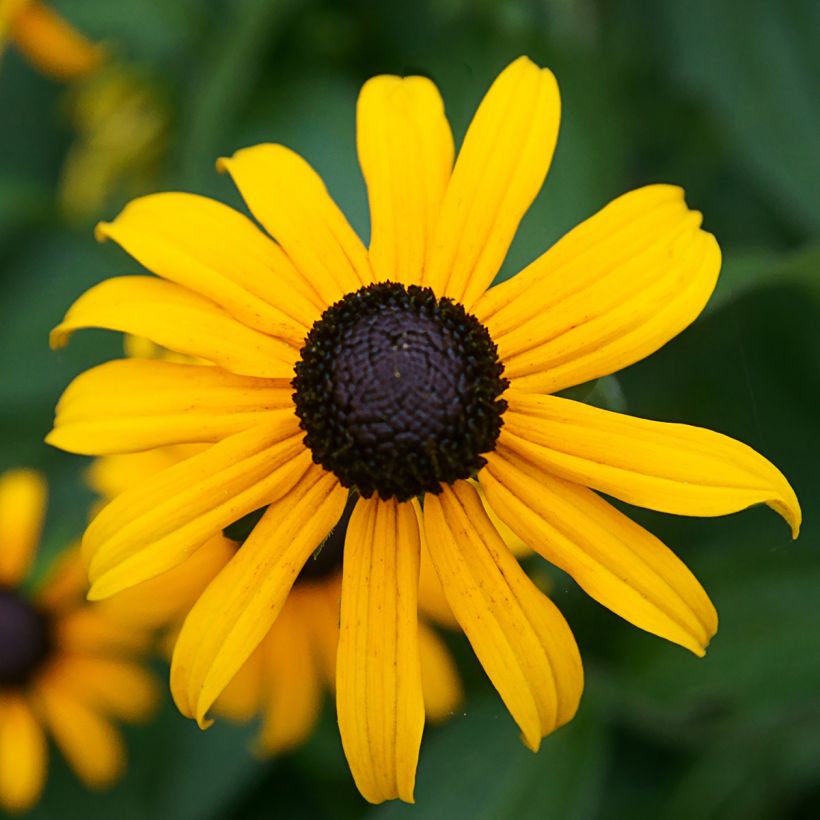

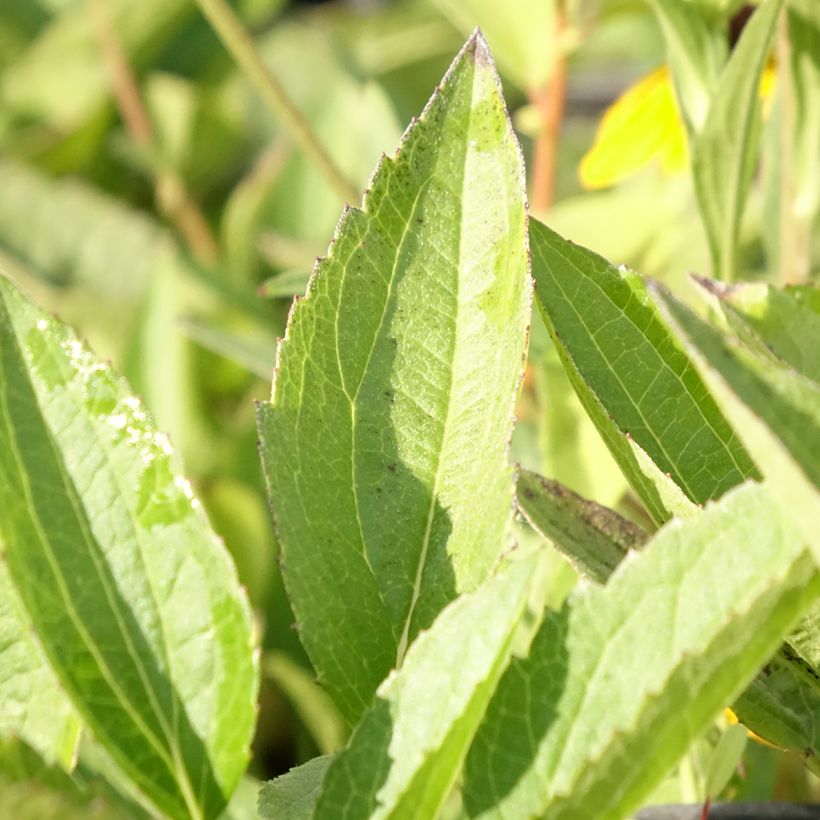

Flowering
Foliage
Plant habit
Botanical data
Rudbeckia
fulgida var. sullivantii
Pot of Gold
Asteraceae
Sullivant's Coneflower, Black-Eyed Susan
Cultivar or hybrid
Other Rudbeckia
View all →Planting and care
Planting period
Intended location
Care
This item has not been reviewed yet - be the first to leave a review about it.
Similar products
Haven't found what you were looking for?
Hardiness is the lowest winter temperature a plant can endure without suffering serious damage or even dying. However, hardiness is affected by location (a sheltered area, such as a patio), protection (winter cover) and soil type (hardiness is improved by well-drained soil).

Photo Sharing Terms & Conditions
In order to encourage gardeners to interact and share their experiences, Promesse de fleurs offers various media enabling content to be uploaded onto its Site - in particular via the ‘Photo sharing’ module.
The User agrees to refrain from:
- Posting any content that is illegal, prejudicial, insulting, racist, inciteful to hatred, revisionist, contrary to public decency, that infringes on privacy or on the privacy rights of third parties, in particular the publicity rights of persons and goods, intellectual property rights, or the right to privacy.
- Submitting content on behalf of a third party;
- Impersonate the identity of a third party and/or publish any personal information about a third party;
In general, the User undertakes to refrain from any unethical behaviour.
All Content (in particular text, comments, files, images, photos, videos, creative works, etc.), which may be subject to property or intellectual property rights, image or other private rights, shall remain the property of the User, subject to the limited rights granted by the terms of the licence granted by Promesse de fleurs as stated below. Users are at liberty to publish or not to publish such Content on the Site, notably via the ‘Photo Sharing’ facility, and accept that this Content shall be made public and freely accessible, notably on the Internet.
Users further acknowledge, undertake to have ,and guarantee that they hold all necessary rights and permissions to publish such material on the Site, in particular with regard to the legislation in force pertaining to any privacy, property, intellectual property, image, or contractual rights, or rights of any other nature. By publishing such Content on the Site, Users acknowledge accepting full liability as publishers of the Content within the meaning of the law, and grant Promesse de fleurs, free of charge, an inclusive, worldwide licence for the said Content for the entire duration of its publication, including all reproduction, representation, up/downloading, displaying, performing, transmission, and storage rights.
Users also grant permission for their name to be linked to the Content and accept that this link may not always be made available.
By engaging in posting material, Users consent to their Content becoming automatically accessible on the Internet, in particular on other sites and/or blogs and/or web pages of the Promesse de fleurs site, including in particular social pages and the Promesse de fleurs catalogue.
Users may secure the removal of entrusted content free of charge by issuing a simple request via our contact form.
The flowering period indicated on our website applies to countries and regions located in USDA zone 8 (France, the United Kingdom, Ireland, the Netherlands, etc.)
It will vary according to where you live:
- In zones 9 to 10 (Italy, Spain, Greece, etc.), flowering will occur about 2 to 4 weeks earlier.
- In zones 6 to 7 (Germany, Poland, Slovenia, and lower mountainous regions), flowering will be delayed by 2 to 3 weeks.
- In zone 5 (Central Europe, Scandinavia), blooming will be delayed by 3 to 5 weeks.
In temperate climates, pruning of spring-flowering shrubs (forsythia, spireas, etc.) should be done just after flowering.
Pruning of summer-flowering shrubs (Indian Lilac, Perovskia, etc.) can be done in winter or spring.
In cold regions as well as with frost-sensitive plants, avoid pruning too early when severe frosts may still occur.
The planting period indicated on our website applies to countries and regions located in USDA zone 8 (France, United Kingdom, Ireland, Netherlands).
It will vary according to where you live:
- In Mediterranean zones (Marseille, Madrid, Milan, etc.), autumn and winter are the best planting periods.
- In continental zones (Strasbourg, Munich, Vienna, etc.), delay planting by 2 to 3 weeks in spring and bring it forward by 2 to 4 weeks in autumn.
- In mountainous regions (the Alps, Pyrenees, Carpathians, etc.), it is best to plant in late spring (May-June) or late summer (August-September).
The harvesting period indicated on our website applies to countries and regions in USDA zone 8 (France, England, Ireland, the Netherlands).
In colder areas (Scandinavia, Poland, Austria...) fruit and vegetable harvests are likely to be delayed by 3-4 weeks.
In warmer areas (Italy, Spain, Greece, etc.), harvesting will probably take place earlier, depending on weather conditions.
The sowing periods indicated on our website apply to countries and regions within USDA Zone 8 (France, UK, Ireland, Netherlands).
In colder areas (Scandinavia, Poland, Austria...), delay any outdoor sowing by 3-4 weeks, or sow under glass.
In warmer climes (Italy, Spain, Greece, etc.), bring outdoor sowing forward by a few weeks.






























